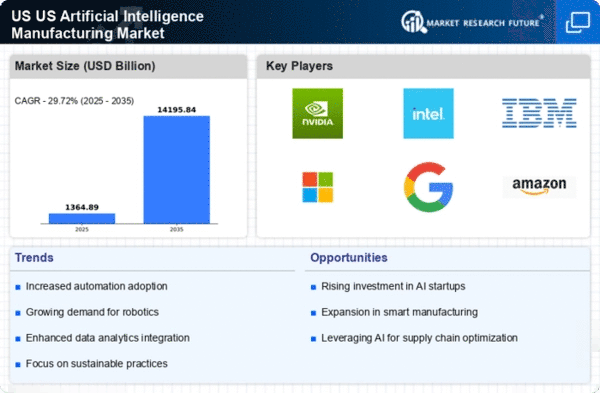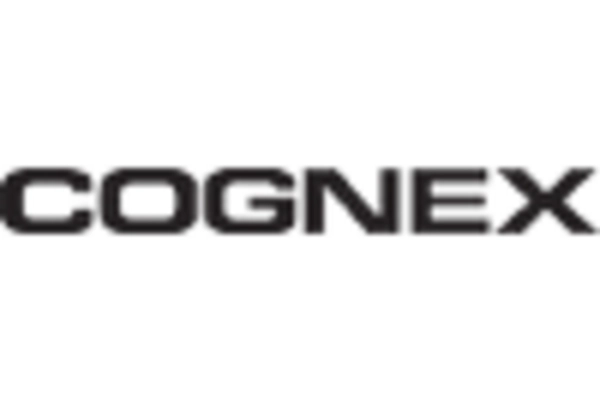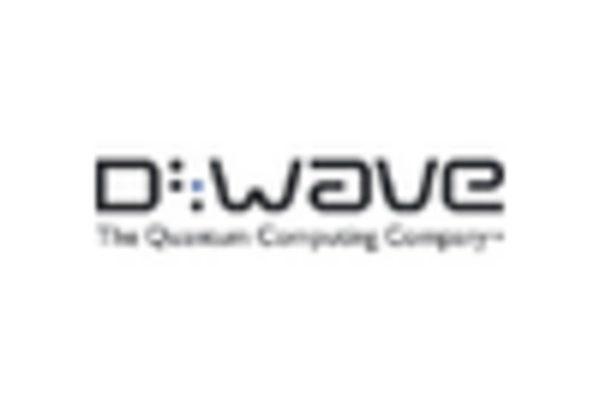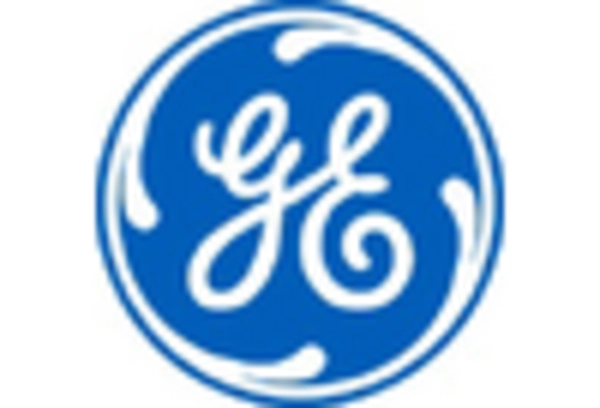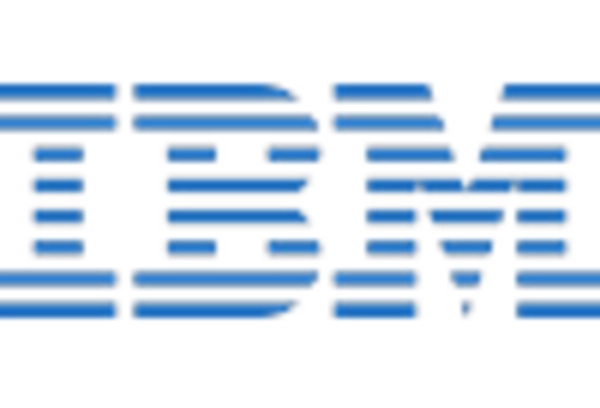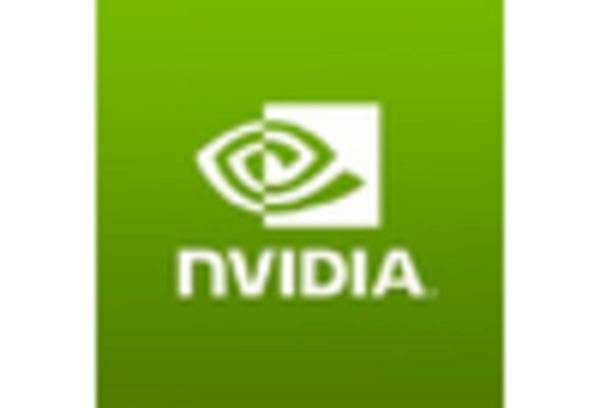Focus on Workforce Upskilling
The emphasis on workforce upskilling is becoming a pivotal driver in the US Artificial Intelligence Ai In Manufacturing Market. As AI technologies become more prevalent in manufacturing, there is a growing recognition of the need for skilled workers who can effectively operate and manage these advanced systems. Companies are investing in training programs to equip their workforce with the necessary skills to thrive in an AI-driven environment. This focus on upskilling not only enhances employee productivity but also fosters innovation within organizations. As the workforce adapts to new technologies, the US Artificial Intelligence Ai In Manufacturing Market is likely to see a more competent and agile labor force, further accelerating the adoption of AI solutions.
Government Support and Funding
Government initiatives play a crucial role in the growth of the US Artificial Intelligence Ai In Manufacturing Market. Various federal and state programs are designed to promote the adoption of AI technologies in manufacturing. For instance, the National Institute of Standards and Technology (NIST) has launched initiatives to support AI research and development in manufacturing sectors. Additionally, funding opportunities are available for companies that invest in AI-driven technologies. This support not only encourages innovation but also helps manufacturers to overcome financial barriers associated with implementing advanced technologies. As a result, the US Artificial Intelligence Ai In Manufacturing Market is likely to benefit from increased government backing, fostering a conducive environment for AI adoption.
Rising Demand for Smart Manufacturing
The US Artificial Intelligence Ai In Manufacturing Market is experiencing a notable surge in demand for smart manufacturing solutions. This trend is driven by the need for increased efficiency and productivity in manufacturing processes. According to recent data, the market for smart manufacturing is projected to reach approximately 300 billion USD by 2026. Companies are increasingly adopting AI technologies to optimize operations, reduce downtime, and enhance product quality. The integration of AI in manufacturing allows for real-time monitoring and data analysis, which can lead to significant cost savings and improved decision-making. As manufacturers strive to remain competitive, the adoption of AI-driven smart manufacturing solutions is likely to become a standard practice, further propelling the growth of the US Artificial Intelligence Ai In Manufacturing Market.
Integration of IoT with AI Technologies
The convergence of Internet of Things (IoT) and artificial intelligence is reshaping the landscape of the US Artificial Intelligence Ai In Manufacturing Market. IoT devices generate vast amounts of data from manufacturing processes, and when combined with AI technologies, this data can be transformed into actionable insights. This integration allows for improved monitoring of equipment, predictive analytics, and enhanced decision-making. As manufacturers increasingly adopt IoT solutions, the demand for AI technologies that can process and analyze this data is expected to rise. This trend is likely to create new opportunities within the US Artificial Intelligence Ai In Manufacturing Market, as companies seek to leverage the power of connected devices and AI.
Advancements in Machine Learning Algorithms
The evolution of machine learning algorithms is significantly influencing the US Artificial Intelligence Ai In Manufacturing Market. Recent advancements have led to the development of more sophisticated algorithms that can analyze vast amounts of data with greater accuracy and speed. These improvements enable manufacturers to implement predictive maintenance, quality control, and supply chain optimization more effectively. For example, companies utilizing advanced machine learning techniques have reported reductions in operational costs by up to 20 percent. As these algorithms continue to evolve, they are expected to enhance the capabilities of AI applications in manufacturing, driving further growth in the US Artificial Intelligence Ai In Manufacturing Market.


